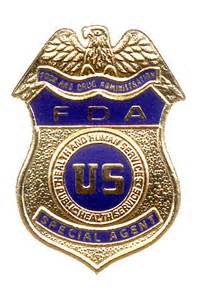FDA Commissioner Scott Gottlieb issued a statement (here) on the Agency’s continuing position related to compounded drugs for patients that cannot use an FDA approved product. However, the bent taken in his statement leans more towards the issues of safety and efficacy, while he points to the Department of Justice’s (DOJ) recent healthcare fraud enforcement actions related to the use of multi-component compounded products thought to artificially increase billing rates for these compounded products.
Dr. Gottlieb noted that the FDA needs to ensure the congressional intent for a balance between access and safety (and efficacy) of compounded product. The statement goes on to say “The FDA is aware of many pharmacies that compound topical pain creams comprised of multiple ingredients. Oftentimes, at least one of the ingredients is an active ingredient in an FDA-approved topical pain cream, such as lidocaine. The remaining ingredients may be active ingredients in drugs approved by the FDA for non-topical administration to treat non-pain related indications, such as antidepressants, anticonvulsants, antivirals and narcotics.”
As a trained pharmacist, the issue of efficacy of these unproven combinations raises considerable concern as to whether the added ingredient compounded into some of the pain combinations really have any additional benefit, especially when one of the ingredients is in an FDA approved product (e.g., lidocaine for topical pain). The question of when healthcare providers should use an FDA approved product instead of a compounded product is thus continually called into question in these situations.
Further, the FDA indicated that they will assure that outsourcing facilities “are compounding drugs from bulk drug substances for which there is a clinical need.” This implies that there will be more focus on scrutinizing compounded drugs where an FDA-approved product might fill the medical need. “In addition, the FDA is inspecting compounding facilities to assess whether drugs that are essentially copies of FDA-approved drugs are being compounded for patients who could use an FDA-approved drug” which further enforces the January 2018 FDA communication (here) that noted “such a practice creates significant public health risks because patients are unnecessarily exposed to drugs that have not been shown to be safe and effective, and it undermines the integrity of the premarket approval processes that Congress put in place to protect patients from unsafe, ineffective, or poor quality drugs.” The Agency will also inspect non-outsourcing facilities to ensure they comply with the prescription requirements for patients.
The compounding arena continues to generate additional work and responsibilities for the FDA and it is FDA’s charge to ensure that compounders are following the rules, while DOJ looks over potential healthcare fraud issues.




